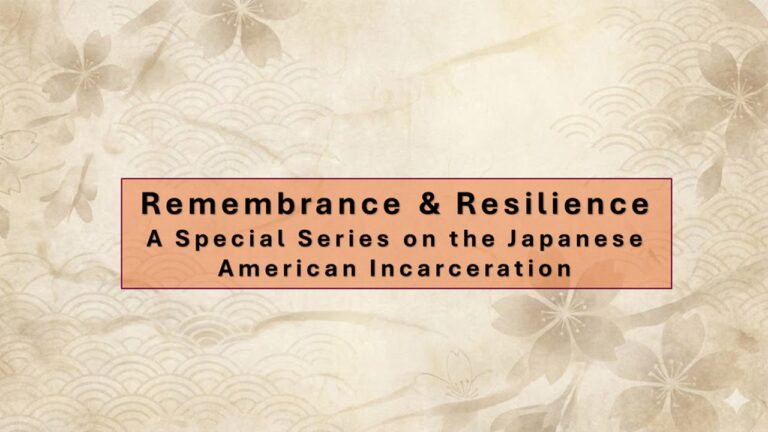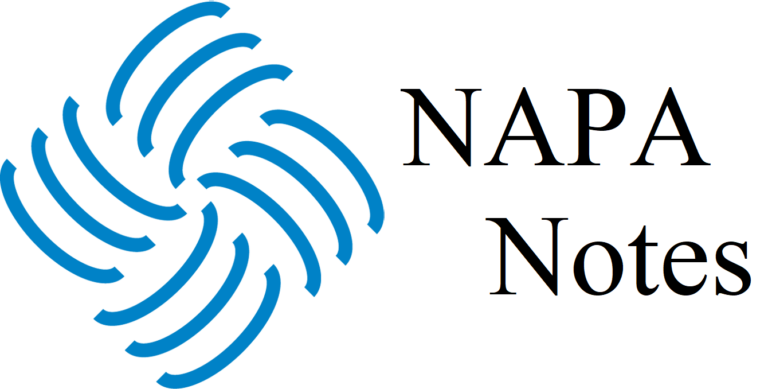National Association for the Practice of Anthropology
sNAPAshots: Lauren Penney

This work is licensed under a Creative Commons Attribution-NonCommercial-ShareAlike 4.0 International License.
Dr. Penney participated in this interview in her personal capacity on September 21, 2022.
Transcript
0:00
[On Screen Image] NAPA Logo
Interviewer 0:14
Welcome to sNAPAshots: conversations with practicing, professional, and applied anthropologists. Let’s meet our next practicing anthropologist.
Lauren Penney 0:26
My name is Lauren penny, and my subfields is medical anthropology.
Interviewer 0:33
How did you get interested in anthropology?
Lauren Penney 0:38
So I was recently at my parents home, and it was tasked with cleaning out my childhood closet, which was a tremendous task. But I had an opportunity to look at some old writings, like the high school, some high school essays. And it made me realize that I’ve really long felt a strong sense of responsibility to make a positive impact in the world. And the way I thought about how I could do that back then seems very naive, and, you know, quite problematic, given my experiences since, but I did go into college feeling this strong need to do something good. And my first year of college, I unfortunately had to drop out due to severe depression and an eating disorder. So I came back home feeling really lost and defeated. But about a year later, I was stable enough to start thinking about going back to school. And so I audited a course at my local California State University. And one of the only open courses at that time was intro to cultural anthropology. And I very, surprisingly loved it. So it really offered me a new perspective on how you could gain a holistic understanding of something. And also, I deeply appreciate it the centering of human experience, and what felt in what felt like a really nuanced and sensitive way. And so I went on to double major in anthropology and psychology as an undergrad, but never really thought of anthropology as something that I could do as a career. However, then I was recommended by one of my professors for a research assistantship at a local anthropologically based research firm, which just happens to be LTG associates. And viewers in the know, know that LTG is headed by NAPA stalwarts, Cathleen crane and Neil Tashima. And so that was just a very fortuitous, very lucky opportunity to see how anthropology can have real world impacts, at least indirectly within my community. And so I was very inspired to go on to continue my graduate training at the University of Arizona in medical anthropology, and applied anthropology.
Interviewer 2:48
What types of industry challenges do you get to help solve with this anthropological lens?
Lauren Penney 2:55
So much of my current work focuses on how you get known or suspected of effective practices and to healthcare in this field has really been codified as implementation science. And it’s a field that really offers anthropologist I think, a lot of different opportunities, in part because anthropologists working in this space have really made a lot of headway and created value for others who are trying to work on some of the questions that implementation scientists are trying to address. And so I think one thing that people understand in this space is that context matters in terms of how and how successfully a best practice is adopted and then maintained within a setting. And anthropologists really excel at understanding the complexity of how this happens, because we both have the tools and methods that can be used as sort of just gain data and information about what’s going on. And then because I think we are sort of encouraged to hold what may be kind of untidy, or contradictory explanations of what’s going on. So we’re not starting to reduce everything to like certain domains or processes, we’re really encouraged to think broadly. And where you think we may be struggle, though, is where we can offer both practical and aspirational solutions. And I think part of that is due to just sort of really intense critical practice training that we all get in grad school, or at least that I got when I was going through my grad program. But I think for me working in interdisciplinary teams, and with partners who are really trained, I think, probably better trained in order to think about solutions and to then enact those solutions, or at least try them out, has helped me to become more comfortable in offering those solutions based recommendations to my partners.
Interviewer 4:47
What advice would you like to pass on to future anthropologists seeking roles in professional fields?
Lauren Penney 4:54
So after I finished my dissertation, my mentor reflected it that my career would probably take me in many different places. In that I should always be open to opportunities and learning something new, even if the opportunity seemed kind of boring, or really not what I wanted to do, or where I saw myself just to really keep my eyes open, and always be looking and learning. And I have found that to be really wonderful advice. I think that sometimes people are told you…your career track will look like this, and these are the steps you take. And from my experience, very, very few people that actually is what it looks like. And I don’t think it’s a failure to not, you know, meet that expected model for career growth and trajectory. And to really find value in, you know, trying out different things, you know, developing a really big skill set that can take you in many different places. And that really opens doors for you, because I think it’s a tremendously challenging labor environment to be in, you know, as a professional anthropologist, you know, as a person in the world, this is, you’re going to face a lot of uncertainty in your life and in your career. And I think the more skills and experience that you have behind you, and the more relationships you have, and it doesn’t have to be a lot of relationships, but keep your relationships, both with peers, and with mentors, I mean, I find that peers, and a lot of cases are as valuable or more valuable than, you know, relationships with mentors. And so I think, keeping key relationships, and then really being open to opportunities when they arise. And learning, I think, is kind of the best you can do. I think there’s a lot of ways to develop a meaningful career. And I certainly think that my career has been meaningful, but it has not looked at all like what I expected it to. And I’m definitely working in areas that I didn’t even know existed when I came out of graduate school.
7:03
[On Screen Text] What is your Anthropological Superpower?
Lauren Penney 7:13
I really, so if I had to give myself an anthropological superpower or identify it, I think that it would be my ability to incorporate a complex array of data sources. I don’t see…It’s not frequently that I see people from other disciplines who are able to really incorporate information coming from multiple sources in a sort of rigorous way, and systematic way. And so I feel like my training and anthropology really demanded me to do that to really think about different people, perspectives, and that people could have different points of view. And that’s totally okay. And so I feel like that serves me really well, especially when coming into areas in which maybe I don’t have a lot of experience, because it’s sort of my go to is just sort of tried to understand things from multiple points of view from the very beginning. And use that to inform sort of the continuing work that I would do in an area. And so I really feel like that is a superpower and really has been valuable, at least to some of my colleagues.
Interviewer 8:25
Thank you, Lauren, for sharing your experience as a practicing medical anthropologist. For more sNAPAshots, find a set practicing anthropology.org Meta LinkedIn and Twitter. Save the date practicing anthropologists! Join NAPA at the Careers Expo November 10 2023, in Toronto, Canada. See you there.
Credits 8:48
Dr. Penney Participated in this interview in her personal capacity on September 21, 2022.
Produced by: Niel Tashima, Cathleen Crain, Joshua Liggett
Directed by: Reshama Damle, Suanna Crowley
Music by: Ron Genilas “Chillout Lounge”
Assistant Directors: Anya Meave, Mikaela Williams, Juana Lozano
Many Thanks to NAPA’s Governing Council for supporting sNAPAshots: Conversations with Practicing, Professional, and Applied Anthropologists NAPA is a section of the American Anthropological Association
See you in person at the Careers Expo in Toronto, Canada Nov 10, 2023!
NAPA is seeking volunteers to join the sNAPAshots project. We’d love to hear from YOU!
Contact: ntashima@ltgassociates.com
Lauren Penney 8:50
[Outtakes] And it’s just been really striking to me, how lucky I’ve been to have so many really strong and female mentors who are also happens to be really great scientists and researchers and evaluators, and have just really provided a beautiful model for what it could be like to be a really successful, professional but also to have a really meaningful career in life. And I’m truly grateful for that.
9:19
[On Screen Image] NAPA Logo
Transcribed by https://otter.ai



![[NAPA Logo] sNAPAshots: Conversations with Professional, Practicing, and Applied Anthropologists. Rosalie Post, Design Anthropologist, Co-founder of NAMLA. PracticingAnthropology.org Bluesky, X, Meta, LinkedIn, and Youtube Logos](https://practicinganthropology.org/wp-content/uploads/Rosalie-Post-LinkedIn-Flyer-768x768.jpg)